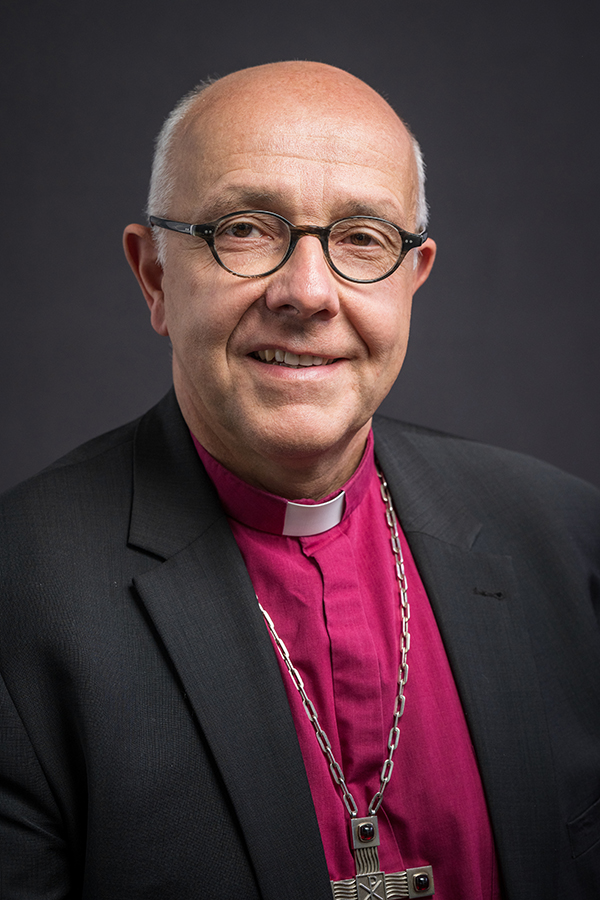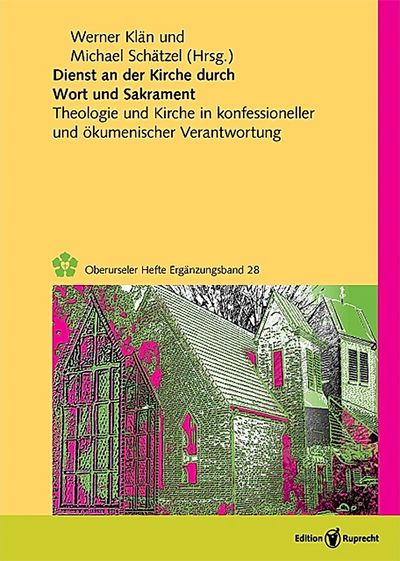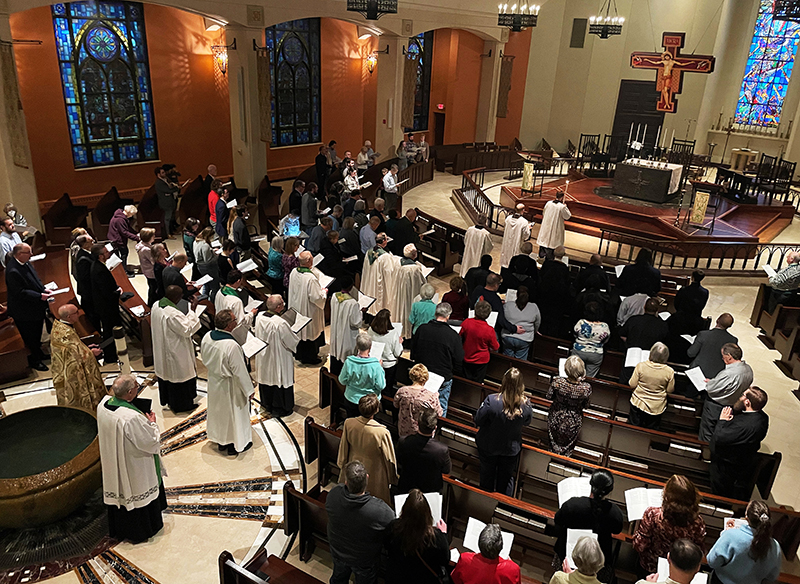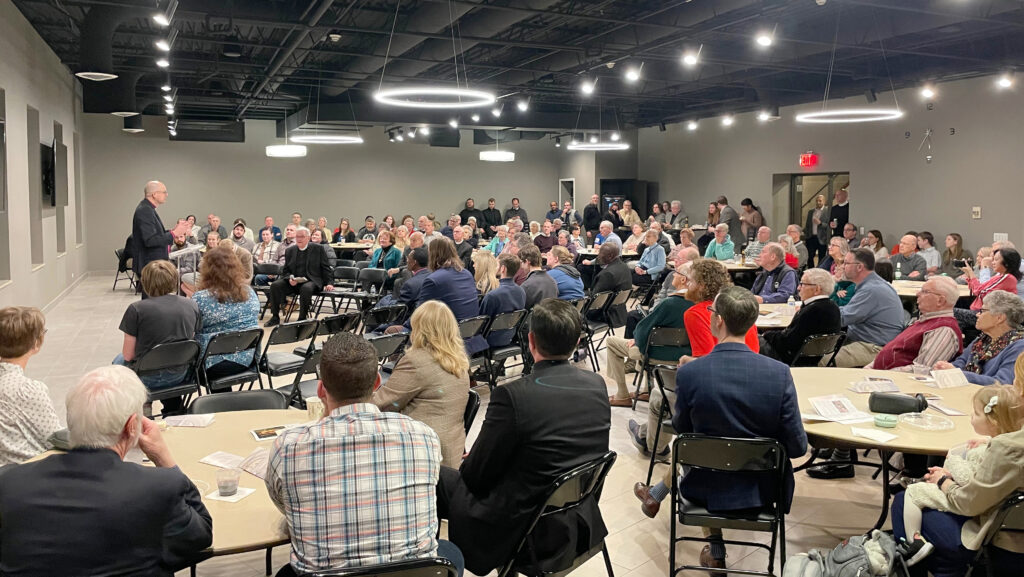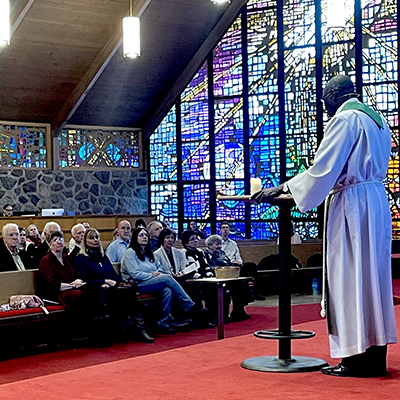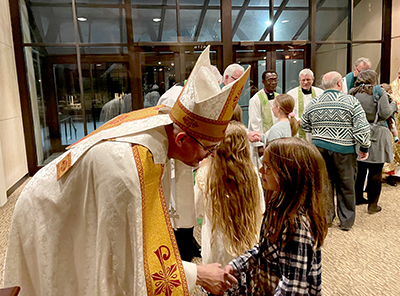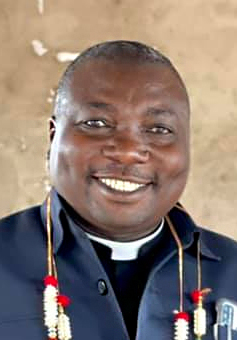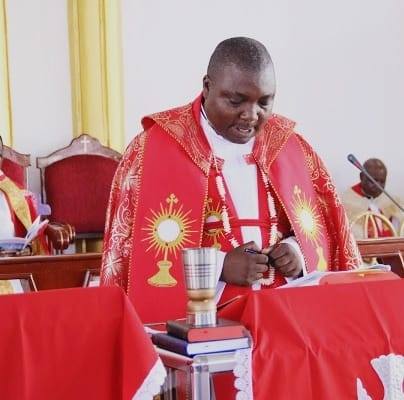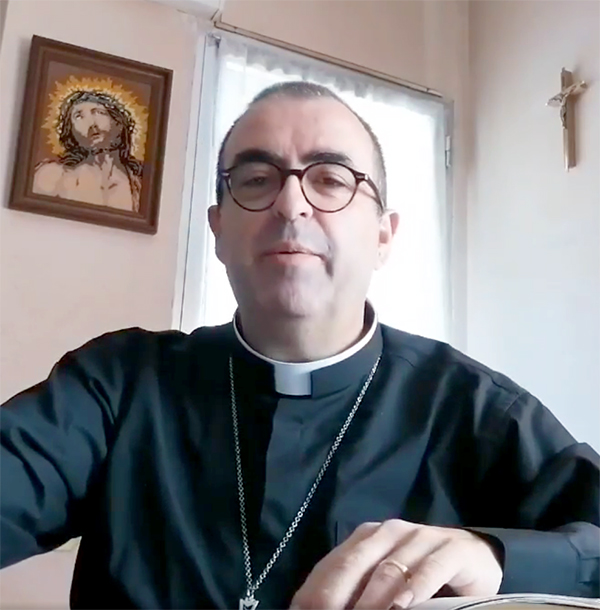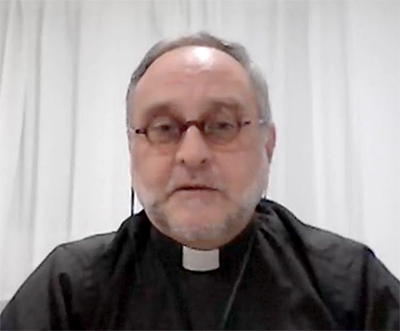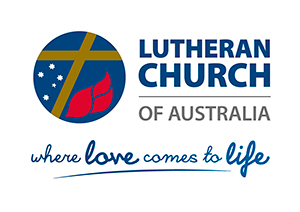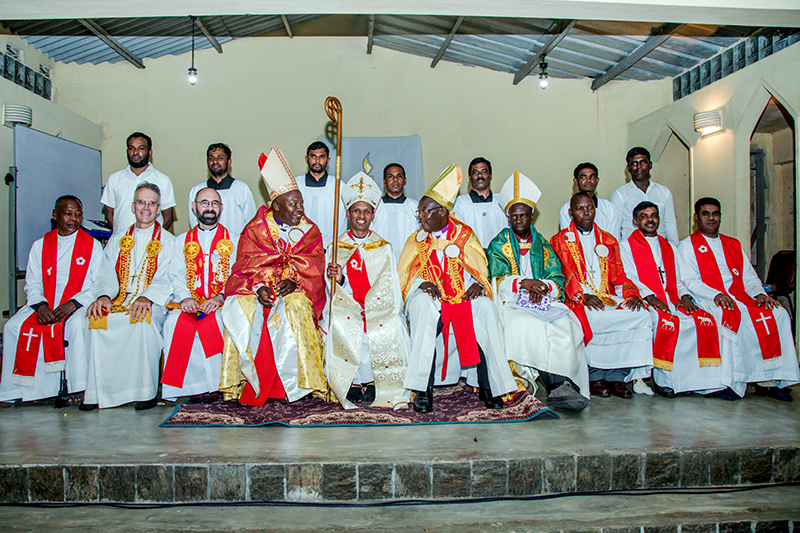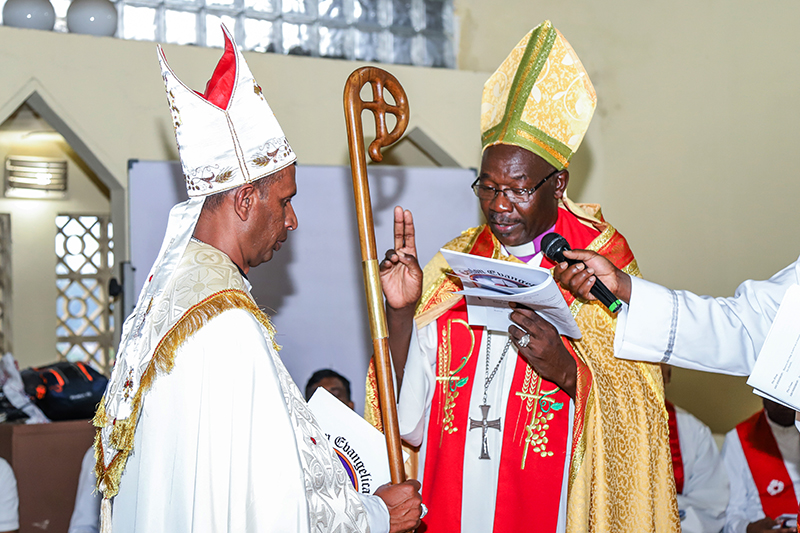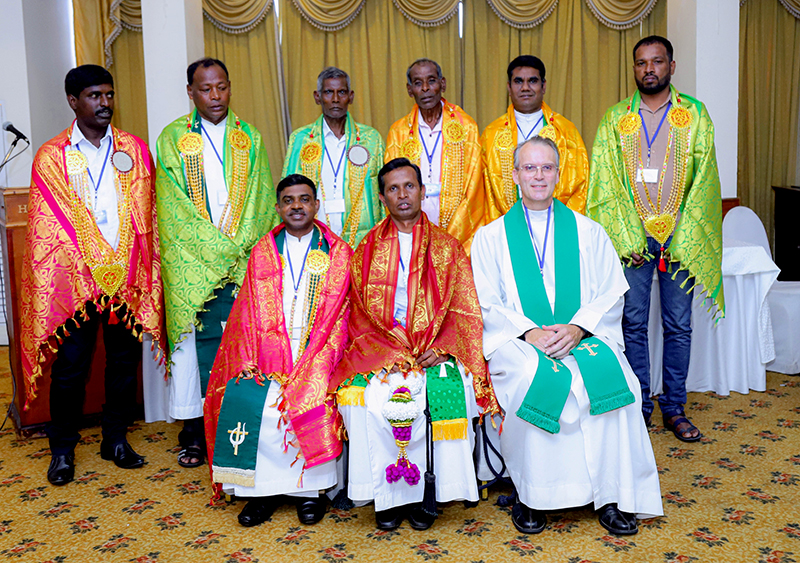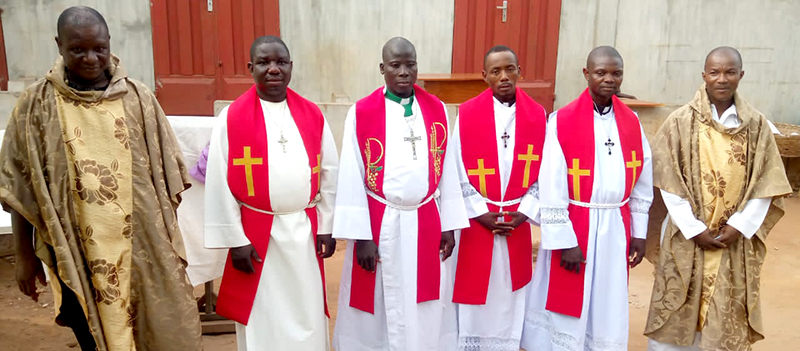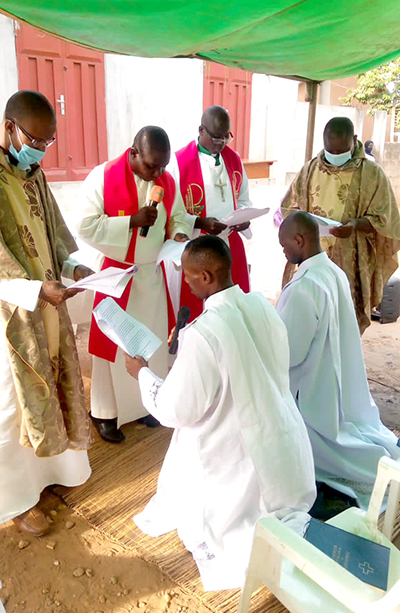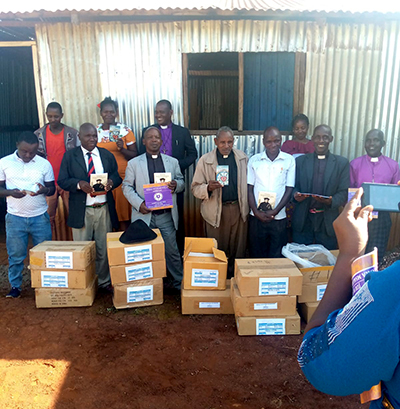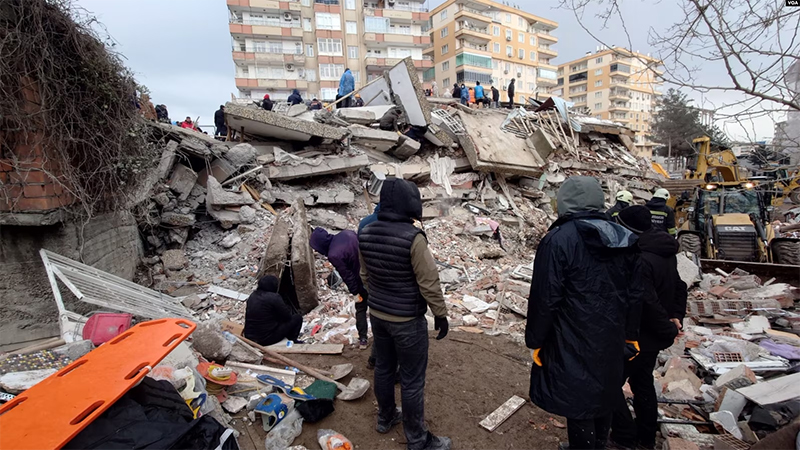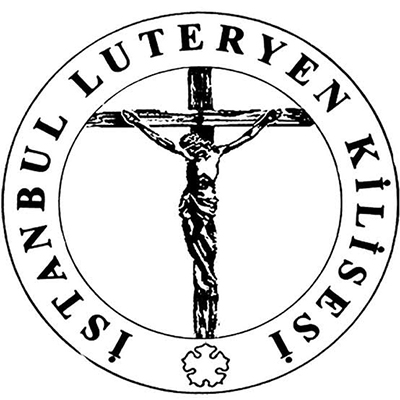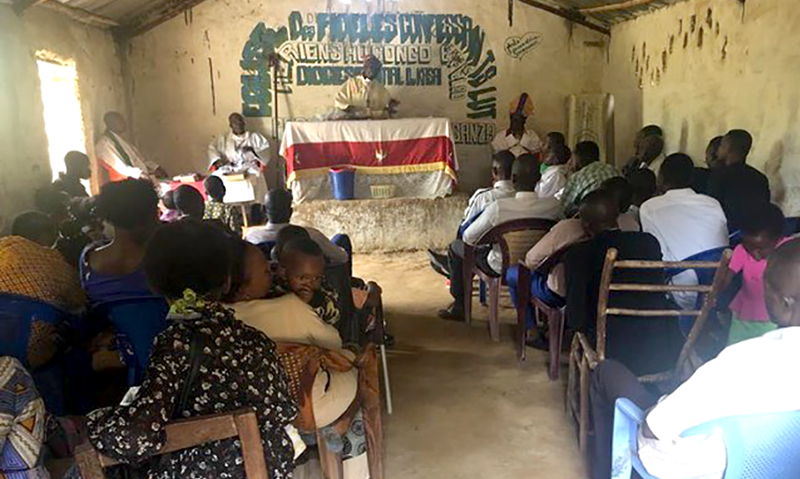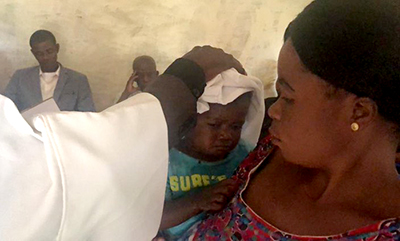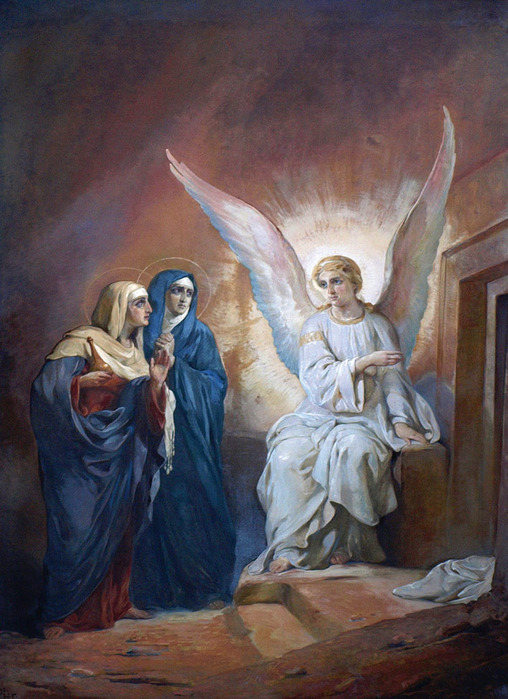
by Timothy Quill
“Now after the Sabbath, toward the dawn of the first day of the week, Mary Magdalene and the other Mary went to see the tomb. And behold, there was a great earthquake, for an angel of the Lord descended from heaven and came and rolled back the stone and sat on it.” – Matthew 28:1-2
The angel of the Lord sat on the stone. What a thought-provoking sight: an angel whose appearance was as lightning and with clothes as white as snow, sitting there on a large stone. With this simple action the angel draws our eyes to the stone. The large stone which had been used to seal the lifeless body of Jesus in his grave.
It is a custom in some countries today for the family of the deceased to leave the room when the lid on the casket is closed for the last time and to leave the cemetery before the casket is lowered and buried in the ground. Emotionally it is just too much to take—so we are told. Once the lid is closed, the loved one will not be seen again in this lifetime. The closed lid removes the loved one from sight but not from memory. So, the bereaved continue to visit the graves of those they love—the heart aches, tears fall, prayers ascend, and flowers are placed next to grave stones.
So it was also with Mary Magdalene and the other Mary. They went to see the tomb. They brought spices to anoint the dead body of our Lord. They had been with Jesus and experienced His kindness, love, and mercy. Love drew them to His tomb. They arrived at the tomb at dawn on Sunday but to their surprise they saw that the rock was rolled back and upon it sat an angel. In Jesus’ day, preachers sat down when they preached. Jesus sat to preach in the synagogue in Nazareth and in the boat in the sea of Galilee. Now the angel sits upon the stone to preach the first Easter sermon and the women listened. “The angel said to the women, ‘Do not be afraid, for I know that you seek Jesus who was crucified. He is not here for He has risen, as He said. Come, see the place where He lay’” (Matthew 28:5-6).
“Do not be afraid, for I know that you seek Jesus who was crucified. He is not here for He has risen, as He said. Come, see the place where He lay.”
With these words faith is born and despair gives way to joy. The resurrection changes everything. Today, whenever and wherever Christians join Mary Magdalene and the other Mary in their trek to the cemetery—when we stare into the dreadful dark pit which slowly swallows up the body of our friends and loved ones—we believe and confess with Mary Magdalene and St. Paul, “Death is swallowed up in victory” “Thanks be to God, who gives us the victory through our Lord Jesus Christ”(1 Corinthians 15:54, 57). We believe and take comfort in Jesus’ own words: “I am the resurrection and the life. Whoever believes in me, though he die, yet shall he live, and everyone who lives and believes in me shall never die”(John 11:25).Our Lord’s words comfort us in our grief, and they also prepare us for a blessed death.
Christian funerals are celebrations of the resurrection and of Holy Baptism. St. Paul tells us: “All of us who were baptized into Christ Jesus were baptized into His death… If we have been united with Him like this in His death, we will certainly also be united with Him in His resurrection”(Romans 6:3, 5). At the time of Christ, the Romans buried people at night because they believed that a funeral was an evil omen. Christians on the other hand chose the daytime. They processed to the grave wearing white garments. They carried palm leaves, together with lights, and incense was burned—all to express the idea of triumph over death. They sang psalms of hope and alleluias of victory.
And what do Christians do at funerals today? We sing.
Christ is arisen from the grave’s dark prison.
So let our joy rise full and free;
Christ our comfort true will be. Alleluia! (LSB 459)
He who was freed from the grave’s dark prison, He who no stone could keep captive, sets us free! So, we sing.
In the Garden of Eden, Eve listened. She listened to the words preached by the evil angel. She believed what he said, ate and shared the deadly fruit with Adam. And death entered paradise. The first sermon preached after Jesus’ resurrection was also preached by an angel. Mary Magdalene listened and believed what he said, and shared the life-giving news of Jesus’ resurrection with the disciples. The two Marys left the tomb, their hearts filled with fear and great joy. While on their way, they were met by the risen Lord Jesus who greeted them. First, they believe, then they see, fall before Jesus, take hold of His feet and worship Him.
This sequence of events is repeated every Sunday when the Church gathers to worship Jesus. First the Word is preached, then we hear the greeting from the risen Lord, and then His body and blood are touched and worshipped. First is the Word—the sermon—for it is the Gospel of Christ that creates and sustains faith. The ears hear, the heart believes and the lips confess. We live by faith not sight. “Blessed are those who have not seen and yet have believed” (John 20:29).
First the Word is preached, then we hear the greeting from the risen Lord, and then His body and blood are touched and worshipped.
As it was with Mary Magdalene on that first Easter morning, so it remains today in the Divine Service. After the consecration the pastor elevates the body and blood for all to see and says, “The peace of the Lord be with you always.” In one sense the pastor is saying, “He is here for He has risen.” After the greeting the Bride of Christ not only takes hold of the feet of our Lord, but also His hands and His side—in fact, Jesus embraces us. He fills us with His sacred body and blood. In the breaking of bread our eyes are opened to see the risen Lord Jesus Christ before us. The Proper Preface for Easter Day says it beautifully:
“It is truly good, right, and salutary that we should at all times and in all places give thanks… And most especially are we bound to praise You on this day for the glorious resurrection of Your Son, Jesus Christ, the very Paschal Lamb, who was sacrificed for us and bore the sins of the world. By His dying He has destroyed death, and by His rising again He has restored to us everlasting life. Therefore, with Mary Magdalene, Peter, and John, and with all the witnesses of the resurrection, with angels and archangels, and with all the company of heaven we laud and magnify Your glorious name.”
We join with Mary Magdalene when we gather at the grave side with fellow baptized Christians to bury our dead, to confess the resurrection, and to sing hymns. On Easter we gather with angels and archangels—including the angel who sat on the tombstone and preached the good news of our Lord’s resurrection. And we join with Mary Magdalene, Peter, and John, and all the witness of the resurrection who saw Jesus yet like us were saved by grace through faith, not sight. We join with them when we give thanks and when we sing the heavenly Sanctus in the presence of our risen Lord at Holy Communion. And we join with seven million Lutheran brothers and sisters in the International Lutheran Council from sixty countries around the world who joyfully sing Easter hymns on Easter morning and shout, “He is risen indeed!”
Joseph and Mary went up from Galilee to Bethlehem (Luke 2:4). On Easter morning, Jesus told the two Marys: “Do not be afraid; go and tell my brother to go to Galilee, and there they will see me” (Matthew 28:10). To Galilee—the Galilee of the Gentiles. Galilee where Matthew’s Gospel ends with Jesus sending His disciples to all nations by preaching and baptizing. On Easter morning all over the world, on the dawn of the first day of the week, Christians open their sleepy eyes and smile as they realize: “Today is Easter Sunday—the celebration of the Resurrection of Jesus.”
And the words of the angel to the two Marys echo through our ears: “Do not be afraid, for I know that you seek Jesus who was crucified. He is not here, for He has risen.”
———————
Rev. Dr. Timothy C.J. Quill is General Secretary of the International Lutheran Council.

